The Statesman
and the
Storyteller

JOHN HAY, MARK TWAIN, AND THE RISE OF AMERICAN IMPERIALISM

MARK ZWONITZER
Algonquin Books of Chapel Hill 2016
For Gerri,
Now and Always.

Contents

ONE
Making a Way in the World
TWO
A Bad-Luck Habit
THREE
With Friends Like These
FOUR
Right and Kind towards the Others
FIVE
Something More Than Nothingness
SIX
Still at Sea
SEVEN
Accepting the Inevitable, or Not
EIGHT
Easing Burdens
NINE
Bluff, Brutal, Blunt
TEN
The Town Begins to Grow Abominable
ELEVEN
Theodore Beats the Drums
TWELVE
I Will Do without the Monument
THIRTEEN
A Panorama of Power Unequaled in History
FOURTEEN
The Warm Afterglow of a Diamond Jubilee
FIFTEEN
Repose and Restfulness and Superb Scenery
SIXTEEN
Smoke and Fog
SEVENTEEN
Proportionately Delightful
EIGHTEEN
The Demands of His Conscience
NINETEEN
No Back Down
TWENTY
You May Fire When You Are Ready
TWENTY-ONE
What Is Our Next Duty?
TWENTY-TWO
You Hold the Game in Your Own Hands
TWENTY-THREE
A Larger Orbe Than My Ambition Doth Stretch Unto
TWENTY-FOUR
As Becomes a Great Nation
TWENTY-FIVE
The United States Is Gods Country
TWENTY-SIX
Planned and Designed by the Master of Men
TWENTY-SEVEN
Back into the Great Happy River of Life
TWENTY-EIGHT
I Have Never Felt So Absolutely Alone
TWENTY-NINE
Winter and Discontent
THIRTY
Daaaaaam-nation!
THIRTY-ONE
Et Tu, Theodore?
THIRTY-TWO
And Just beyond the Philippines...
THIRTY-THREE
How Much Truth to Tell?
THIRTY-FOUR
Im Expecting a Diminution of My Bread and Butter
THIRTY-FIVE
The Sorrow of One Who Knows
THIRTY-SIX
No Answers but in Time
THIRTY-SEVEN
The Prophet Samuel... Banished
THIRTY-EIGHT
And Look Where We Are Now
THIRTY-NINE
I Could Not Resign Now if I Wanted To
FORTY
I Pledge You My Honor
FORTY-ONE
She Said She Wanted a Home
FORTY-TWO
Without Danger to the Public Health
FORTY-THREE
From the Political Point of View
FORTY-FOUR
It Takes So Little to Upset the Regular Action of the Heart
FORTY-FIVE
I Didnt Wish to Be Useful to the World on Such Expensive Conditions

Prologue

I set out to write a simple and circumscribed bookthe story of the final ten years in the life of one man, John Hay. Hay was the United States of Americas ambassador in London in 1897 and 1898, at a time when that city was the seat of the most impressive empire the world had ever known, and then US secretary of state from 1898 until his death in 1905. He was appointed to his position in the cabinet by President William McKinley and stayed on at the command of his friend Theodore Roosevelt after McKinleys assassination. (Hay had first known of Roosevelt when he was a five-year-old called Teedie.) These public offices landed John Hay in the center of action at a pivot point of American history, a rampaging epoch that introduced habits of conduct our national leaders employ to this day.
The United States of America fought its first full-scale overseas war in those years and took its first steps toward displacing Great Britain as the most potent military and commercial power in the world. The United States took possession or control of Hawaii, Cuba, Puerto Rico, Guam, a piece of the Samoan Islands, the Philippines, and a good bit of Panama. The national reach spread east, west, and south; it would have spread north into Canada, too, if Theodore Roosevelt had had his way. The justifications for this explosive expansion of national aim and activity, much of which could be fairly judged by disinterested observers as extraconstitutional (Oh, Mr. President, the US attorney general reportedly said after Roosevelt secured ownership and control of the Panama Canal Zone, do not let so great an achievement suffer from any taint of legality!), were explicitly and loudly articulated by its projectors: the spread of democracy and Western civilization, the opening of new markets for American business, the national defense, the supremacy of the white man, and even Gods will. There was also much talk of abstractions such as patriotism, honor, and duty.
John Hay was not one to expound these things in public or to thump his own chest, but he was a force in shaping decisions and outcomes. He was also a thoughtful observer throughout, having arrived at the State Department with a long and personal perspective on national events. Hays career in public service began in 1861, when he was just twenty-two years old, as one of Abraham Lincolns two private secretaries in the White House. The beardless youth was shy to boast of his place. When a college friend congratulated him on his position, John Hay joked it away. Yes, he answered, Im Keeper of the Presidents Conscience. But he was at Lincolns side through the worst of the Civil War, when the country was in very real peril of disintegration and the sacrifice of hundreds of thousands of its slaughtered citizens appeared to be too little to save it. Hay had seen and felt the awful burdens the presidency could place on a single mortal man, and he wasnt one to forget. He also knew to keep a record.
Like his Civil War diaries, John Hays letters, diaries, and official correspondence from 1895 to 1905 are clear eyed, frank, amusing, and intimate. They also reveal a rich supporting cast: Presidents McKinley and Roosevelt; Senator Henry Cabot Lodge; a forgotten media mogul and political gadfly named Whitelaw Reid; Lord Salisbury, who stood at the head of Her Majestys vast empire; Her Majesty herself, Victoria, queen of the United Kingdom of Great Britain and Ireland and empress of India; her son Bertie, the Prince of Wales; and her Prussian grandson, the dangerous loon Kaiser Wilhelm II of Germany.
There are also Hays closest friends, Henry Adams and Clarence King. Adams was, at the approach of the twentieth century, a nasty, crabbed little man who wielded a wicked pen, and King a renowned scientist whose hidden life hints at a future beyond John Hays imagination. Then, too, there is Alvey Adee, a wee, near-deaf colleague of Hays who anchored the State Department for more than a generation, and also Hays own son, Del, then making his own first marks in public service. The Countess Marguerite Cassini, quasi-legitimate daughter of the Russian ambassador (her grandson Oleg would dress Jacqueline Kennedy, the First Lady) makes an appearance. So, too, do far-flung characters like the harried naval hero George Dewey and the Filipino freedom fighters Emilio Aguinaldo and Felipe Agoncillo.
But as I went deeper into Hays public and private correspondence, and then into other contemporaneous accounts of the times, one of these side characters kept catching my eye, as if waving madly from the wings. Pick me! He just kept popping up, wheedling, cajoling, auditioning for a starring role. Samuel Langhorne Clemens is a hard man to deny. It wasnt long before he was a second leading man.
Next page

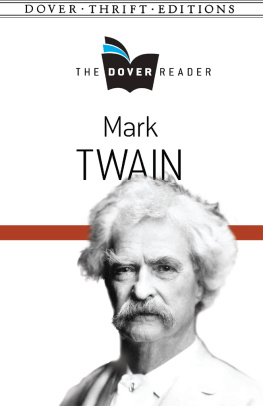

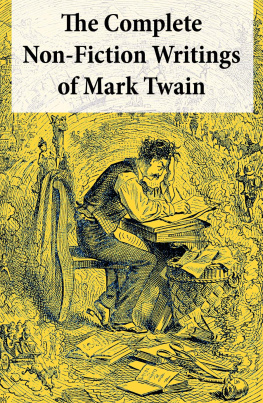
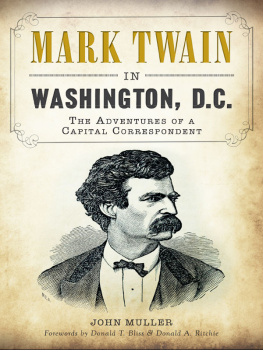
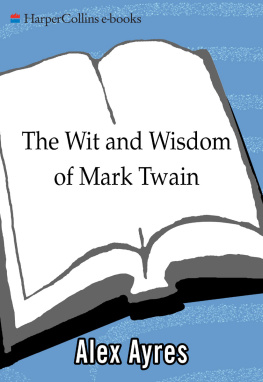
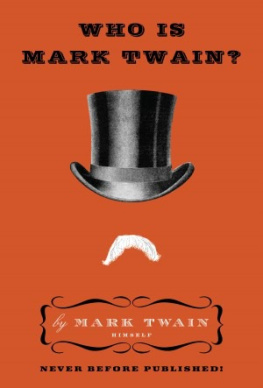
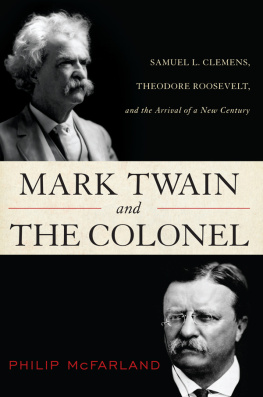
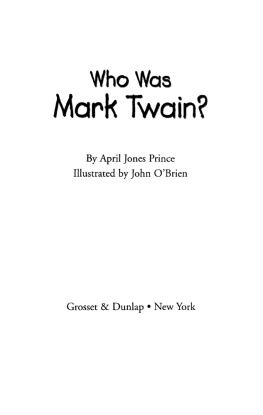
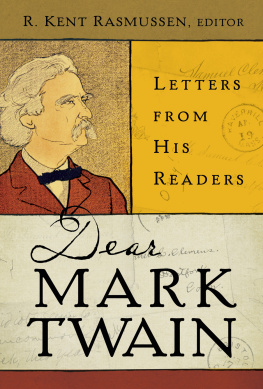

 Contents
Contents 